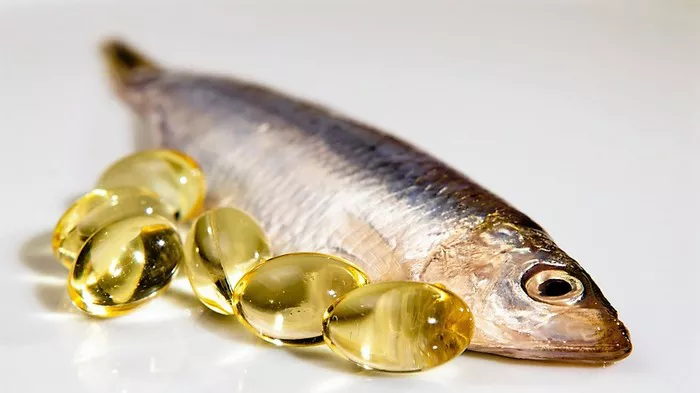Fish oil is a dietary supplement. It contains omega-3 fatty acids. These include eicosapentaenoic acid (EPA) and docosahexaenoic acid (DHA). These are polyunsaturated fats. They are mainly found in fatty fish like salmon, sardines, and mackerel. Omega-3s help reduce triglycerides. They also lower LDL (“bad”) cholesterol slightly. At the same time, they may increase HDL (“good”) cholesterol. This makes fish oil helpful for heart health.
The Role of Omega-3 Fatty Acids in Lipid Control
Omega-3 fatty acids improve lipid profiles. EPA and DHA reduce the production of triglycerides in the liver. They also improve endothelial function. This helps in reducing the risk of plaque formation. Additionally, omega-3s have anti-inflammatory effects. These benefits contribute to reducing cardiovascular events.
EPA and DHA: The Core Components
EPA and DHA are the two main active ingredients in fish oil. EPA is more effective at reducing inflammation. DHA helps improve brain and eye health. Both work together to lower triglyceride levels. They also have modest effects on lowering LDL levels. However, DHA can sometimes raise LDL in high doses.
Prescription Fish Oil vs. Over-the-Counter (OTC) Products
There are two major categories of fish oil supplements: prescription-grade and OTC products. Prescription fish oils are regulated. They contain higher doses of purified EPA and DHA. OTC fish oil supplements vary widely in quality. They may contain lower concentrations of omega-3s. Some also contain contaminants like heavy metals.
Why Prescription Fish Oil Is Safer and More Effective
Prescription fish oils are purified. They remove saturated fats and harmful chemicals. Products like Vascepa and Lovaza have been approved by the FDA. These are used specifically for managing high triglycerides. Vascepa contains only EPA. Lovaza contains both EPA and DHA. Clinical studies support their effectiveness in reducing cardiovascular risk.
Top Recommended Fish Oil Products for Cholesterol
1. Vascepa (Icosapent Ethyl)
Vascepa is a pure EPA product. It is prescription-only. It significantly lowers triglyceride levels. It also reduces the risk of major cardiovascular events. It does not raise LDL cholesterol. That makes it ideal for patients with high triglycerides and existing cardiovascular risk.
2. Lovaza (Omega-3 Acid Ethyl Esters)
Lovaza is another FDA-approved prescription fish oil. It contains both EPA and DHA. It is highly purified. It is used to treat very high triglyceride levels. It can slightly raise LDL cholesterol. So it should be used carefully in some patients.
3. Nordic Naturals Ultimate Omega
This is a high-quality OTC fish oil. It contains a high concentration of EPA and DHA. It is third-party tested for purity. It is suitable for general cholesterol support. It may not be enough for those with very high triglycerides.
4. Carlson Labs Very Finest Fish Oil
This product is known for its purity and flavor. It contains EPA and DHA in natural triglyceride form. It is molecularly distilled. It helps support heart health and cholesterol levels.
What to Look for in a Fish Oil Supplement
Not all fish oil supplements are equal. When choosing one, check the EPA and DHA content. Look for at least 500 mg of combined EPA and DHA per serving. Also, make sure it is third-party tested. This ensures purity and absence of heavy metals. Avoid supplements with added fillers or synthetic ingredients.
Read Labels Carefully
Labels should list the amount of EPA and DHA clearly. Total fish oil content is not enough. A product may have 1000 mg of fish oil but only 300 mg of omega-3s. Always look for the EPA and DHA amounts.
Choose Triglyceride Form When Possible
Fish oil comes in several forms. These include ethyl esters, triglycerides, and phospholipids. Triglyceride form is more natural. It is better absorbed by the body. High-end OTC brands and prescription products often use this form.
Clinical Evidence Supporting Fish Oil for Cholesterol
Many studies have shown fish oil can lower triglycerides. The REDUCE-IT trial showed that Vascepa reduced cardiovascular risk by 25%. It was especially effective in patients with high triglycerides and heart disease. Other studies confirm the triglyceride-lowering effects of both EPA and DHA. However, their impact on LDL and HDL is modest.
Triglyceride Reduction
Fish oil supplements can reduce triglycerides by 20% to 50%. This depends on the dose. Prescription doses of 2 to 4 grams per day are most effective. OTC products usually provide lower doses.
Effects on LDL and HDL
EPA may slightly lower LDL. DHA may raise LDL slightly but also raises HDL. The net effect depends on the ratio of EPA to DHA. Pure EPA products like Vascepa avoid the LDL increase.
Dosage Recommendations
For lowering triglycerides, 2 to 4 grams of EPA and DHA per day is recommended. This should be taken under medical supervision. For general heart health, 1 gram per day is usually enough. Always take fish oil with meals. This improves absorption.
Possible Side Effects
Fish oil is usually safe. Some people experience fishy aftertaste, nausea, or diarrhea. High doses can increase bleeding risk. Always inform your doctor before starting fish oil, especially if you are on blood thinners.
When Fish Oil May Not Be Enough
Fish oil alone may not control cholesterol in all patients. It works best when combined with other therapies. This includes statins, dietary changes, and regular exercise. Fish oil should be part of a complete heart health strategy.
Conclusion
Fish oil is a proven tool for lowering triglycerides. Prescription products like Vascepa and Lovaza are most effective. High-quality OTC brands can support heart health. Always choose supplements with high EPA and DHA content. Read labels carefully. Consult your doctor for the right dose and product. Used properly, fish oil can be a valuable part of cholesterol management.
Related topics:


